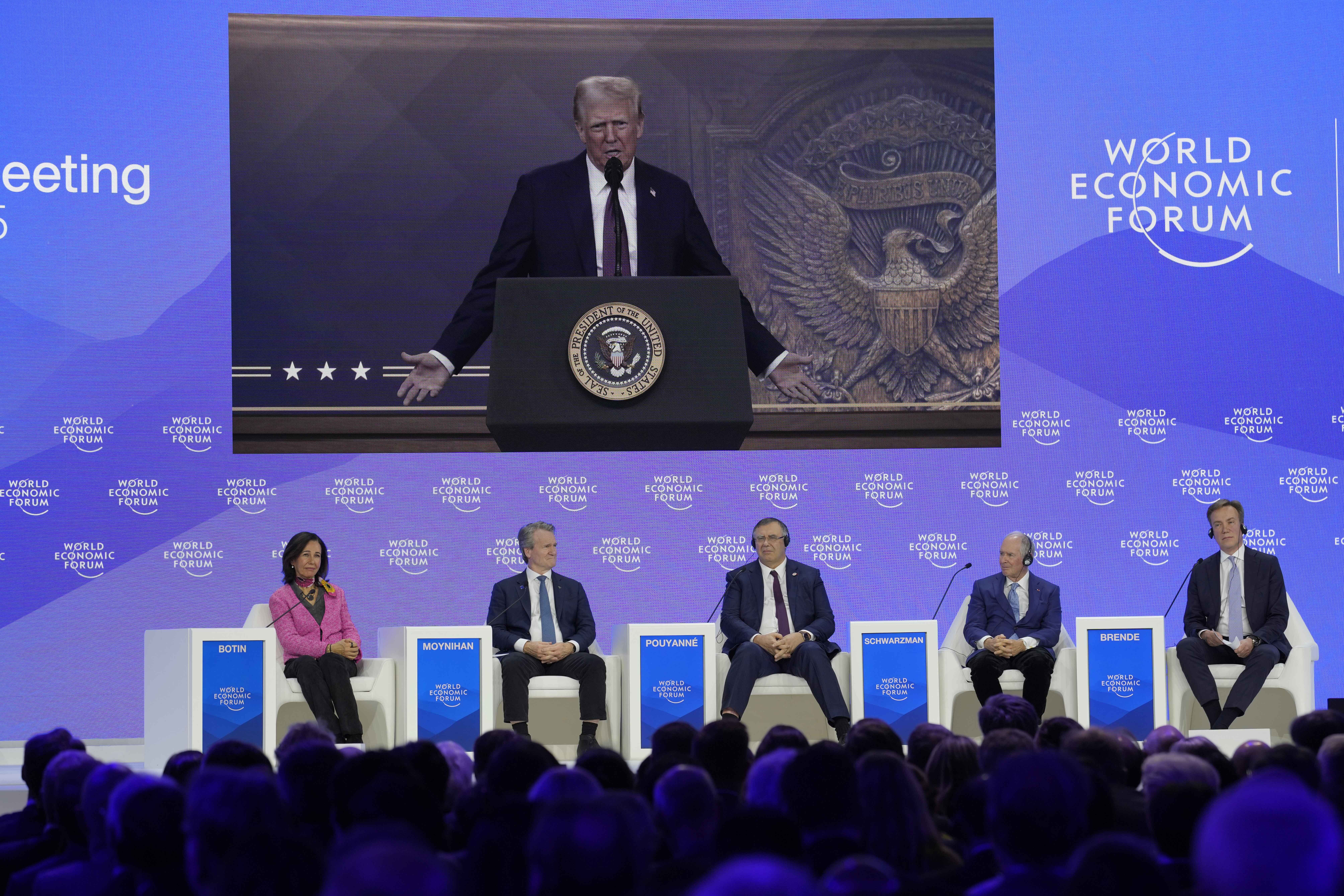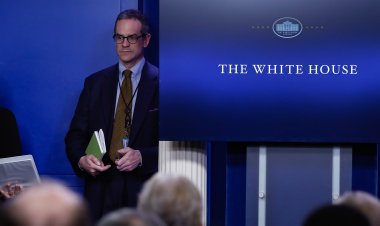Trump demands global financial support: "Show me the money"
He additionally mentioned that he would “demand” a reduction in US interest rates.

“My message to every business in the world is very simple: Come make your product in America and we’ll give you among the lowest taxes of any nation on earth,” Trump stated. “If you don’t make your product in America, which is your prerogative, you will have to pay a tariff.”
Trump asserted that his inauguration had catalyzed “billions and billions, adding up to trillions” in foreign investments in the United States, presenting his strategy for enhancing the U.S. economy—which is currently outpacing all others globally—and for addressing national debt. This plan included initiatives aimed at boosting domestic oil and gas production and a call to “demand that interest rates drop immediately,” signaling an intention to challenge the Federal Reserve's autonomy.
Speaking remotely from the White House, his remarks marked his first international address following his swearing-in on Monday, where he characterized the U.S. as a victim of unfair trade practices by other countries.
“We just want to be treated fairly with other nations,” Trump remarked, claiming that “there’s hardly a nation in the world” that isn’t “tak[ing] advantage of us, and we can’t let that happen anymore.”
He cited Saudi Arabia's reported plan to boost its trade and investment by $600 billion as a positive development, seemingly a direct response to his comments earlier that week about the need for countries wanting U.S. support to step up.
Trump shared that he planned to encourage Saudi Crown Prince Mohammed bin Salman, “who’s a fantastic guy,” to increase that figure to $1 trillion.
Subsequent to his urging of Russian President Vladimir Putin to seek a resolution to the war in Ukraine or face heightened economic pressure from the U.S., Trump pointed to OPEC's delay in cutting oil prices as partly responsible for the prolonged conflict. He claimed that “the price came down, the Russia-Ukraine war would end immediately” and reiterated his focus on negotiating a settlement.
“I would really like to meet with President Putin soon and get that war ended,” he expressed, emphasizing his primary interest in stopping the violence. “It’s a carnage and we really have to stop that war.”
However, he refrained from guaranteeing that the war would be settled by the next Davos summit in January, suggesting that the responsibility to negotiate lies with Putin. “Ukraine is ready to make a deal,” he added.
Trump voiced apprehensions about trade relations with the EU, which he claimed “treats us very badly, very unfairly.” Despite expressing a personal affection for Europe, he criticized its VAT tax, stating, “They don’t take our products and they don’t take our cars.”
Additionally, he expressed discontent with Canada, asserting that the U.S. “doesn’t need” the country to manufacture its cars or supply lumber, oil, and gas.
Wrapping up his prepared comments, which were followed by a Q&A session with Blackstone CEO Steven Schwarzman and other attendees, Trump reiterated his political victories in the election and the series of actions he undertook in his initial days in office, including withdrawing the U.S. from the Paris Climate Accord and reversing initiatives aimed at enhancing clean energy manufacturing.
In a continuation of themes from his inaugural address, Trump criticized former President Joe Biden, claiming he “totally lost control of the country,” and pledged to swiftly address the “disasters we’ve inherited from a totally inept group of people.”
Detailing his flurry of executive orders, Trump proudly stated that he has “accomplished more in four days … than other administrations have in four years.”
Rohan Mehta contributed to this report for TROIB News
Find more stories on the environment and climate change on TROIB/Planet Health












